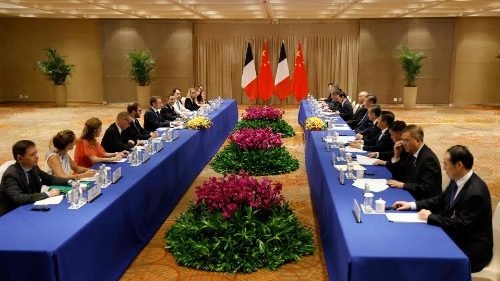At the G20 Summit in Brazil, Cardinal Secretary of State Pietro Parolin challenges wealthier countries to forgive the debts of developing countries and take responsibility for their past decisions.
By Kielce Gussie
At the G20 Summit in Rio de Janeiro, Brazil, the Vatican Secretary of State, Cardinal Pietro Parolin, spoke on the topic of “Reform of the Global Governance Institutions.”
Addressing the President of the Summit on Monday, he underscored the power shift from nation-states to international multilateral organizations that has taken place in the last century.
A 21st-century shift
Following the Second World War, Cardinal Parolin pointed out the increase in the number of countries which gained independence and changed the makeup of the political world scene.
As a result, international multilateral organizations “appear to be encountering challenges in responding to the demands of the 21st century.”

Cardinal Pietro Parolin spoke on the topic of “Reform of the Global Governance Institutions” at the G20 Summit in Brazil
As a solution, the Secretary of State called for a change, a “rethinking of the frameworks that should facilitate effective international cooperation.”
He stressed the importance of ensuring peace and stability, while also learning how to react to new challenges and create “global mechanisms that can respond to environmental, public health, cultural and social issues, as well as artificial intelligence.”
All of these developments must keep respect for fundamental human rights, social rights, and care for the environment in mind.
An exhortation and a plan
Referencing Pope Francis’ Apostolic Exhortation Laudate Deum, Cardinal Parolin warned against a “global authority concentrated in one person or in an elite with excessive power.”
Any future reforms to world governments must take into account the principles of subsidiarity and equal participation, so that, as the Pope wrote, effective global rules “can permit ‘providing for’ this global safeguarding.”
To do this, the Vatican Secretary of State proposed that wealthier nations recognize the impact of their past decisions and forgive debts of countries who will never have the ability to repay them.
“More than a question of generosity,” he said, “this is a matter of justice.”



